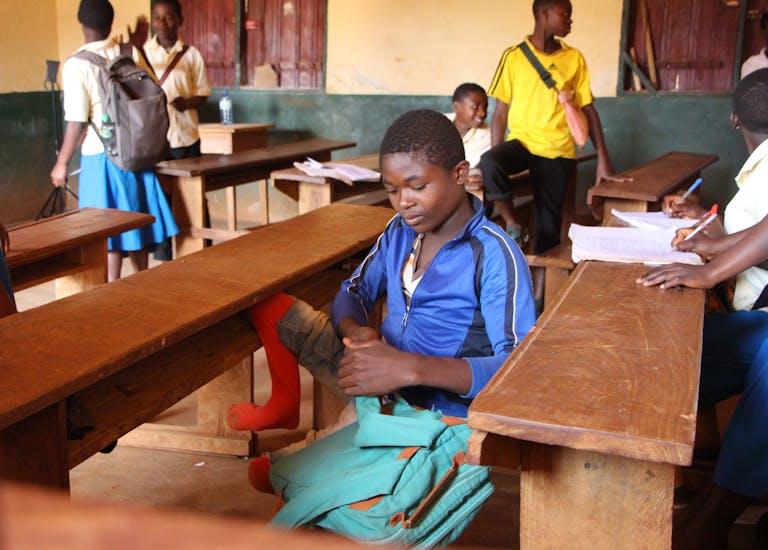About Breaking down Barriers
Breaking down Barriers 2.0 contributes to more effective and evidence-based policies and programmes in the field of disability inclusive development. The starting-point is that knowledge, research and learning are key for making better decisions during program design and implementation. Research is conducted in Cameroon, Sierra Leone and Zambia, drawing upon close cooperation between partner organisations of Liliane fonds and academics from these countries. Breaking down Barriers produces actionable knowledge and products like policy briefs, training and manuals.
Breaking down Barriers will continue to its activities in a new multi-annual research program (October 2024-December 2028). In September 2024, the plans for BdB 3.0 will be launched, which feature more in-depth research to continue to advance the inclusion of children and youth with disability.
History
In 2014, Liliane Fonds launched Breaking down Barriers to enhance disability inclusion practices in the global South through academic research. Aiming to adopt a more evidence-based approach and professionalize its lobbying and advocacy efforts, LF saw collaboration with a university as a logical next step. This partnership could provide valuable insights into effective lobbying strategies, thereby increasing their impact. Consequently, LF partnered with the African Studies Centre at Leiden University. To enhance generalizability and learning opportunities, three focus countries were selected: Cameroon, Zambia, and Sierra Leone. Breaking down Barriers formed close collaborations with LF’s partner organizations in these countries—One Family People in Sierra Leone, Cameroon Baptist Convention Health Services, and Cheshire Homes Zambia—supported by local academics. During Breaking down Barriers 1.0 (2015-2019), the project produced significant outputs, including 11 studies on disability advocacy, in-country learning events, and policy briefs. A notable achievement was winning the Impact Challenge Award in 2019.
Building on the success of Breaking down Barriers 1.0, the project progressed into a second phase with largely the same partners in the same countries. Radboud University’s Department of Gender & Diversity joined as the new academic partner in the Netherlands. The research focus expanded from disability advocacy to disability-inclusive development, facilitating broader involvement from the partners. Research included a mix of cross-country and country-specific studies, resulting in over 20 studies conducted between 2020 and 2024 on themes such as leadership in inclusive education, SRHR and intersectionality, and community-based rehabilitation. Numerous national and international learning events have been organized, reaching hundreds of stakeholders worldwide
